Apr 10th 2019
What Is an Herbalist? 3 Key Things You Need to Know
Herbalism, the practice of the medicinal and therapeutic use of plants, has a history that spans thousands of years. It predates recorded history and forms the origin of much of modern medicine. Herbalism has also influenced many cultures, as countries such as South Africa, India and China have established their own unique herbal traditions. Interest in this form of medicine has transcended its origins, as about 80% of people in the world use herbalism, according to the World Health Organization (WHO).
With herbalism, leaves, seeds, bark, flowers, and other plant parts are carefully selected to treat specific conditions. Since these plant parts are potent, they should be used as directed by a skilled practitioner. That’s where an herbalist comes in.
Modern herbalists are those who are specially trained in the field of herbal medicine. While some are certified by accredited or well-established herbal schools, others are self-taught. The training you receive is based on the type of herbalist you want to become. For example, home herbalists may receive training that’s more informal and structured around their family’s needs, while clinical herbalists must understand the scientific side of herbs - like the chemical makeup of plants and botanical nomenclature. Training also varies by herbal traditions. Chinese herbalists typically receive formal training to learn the therapeutic uses of Chinese herbs, whereas
Ayurvedic herbalists study remedies that balance the body’s three primary metabolic forces - or doshas - known as Vata, Pitta, and Kapha.










